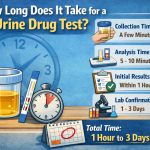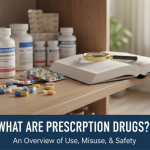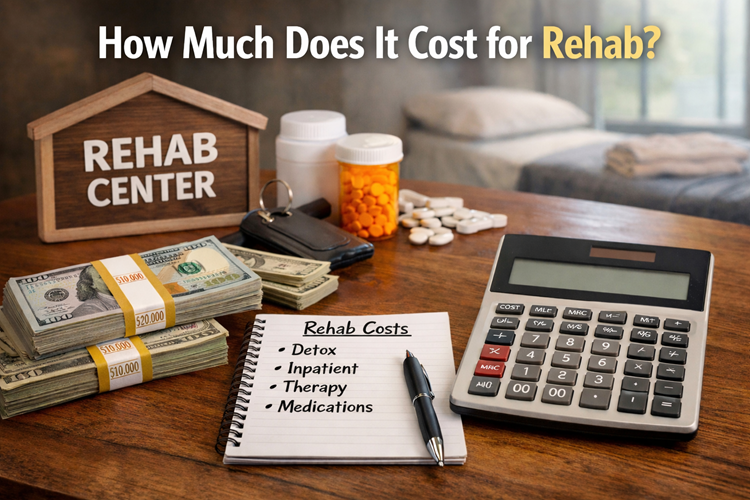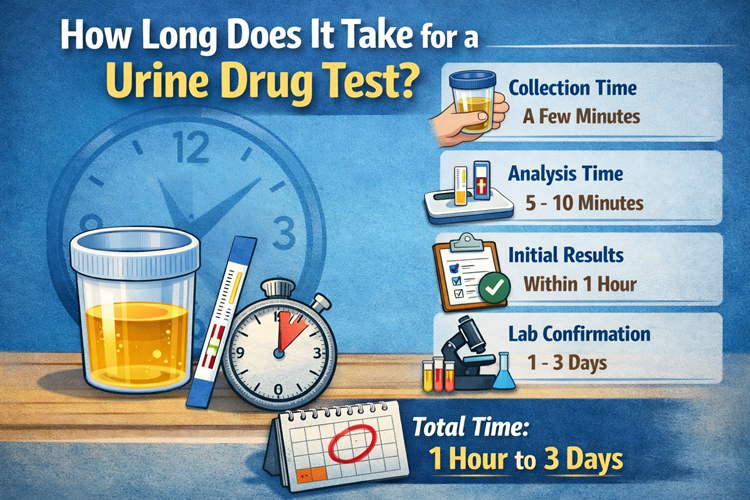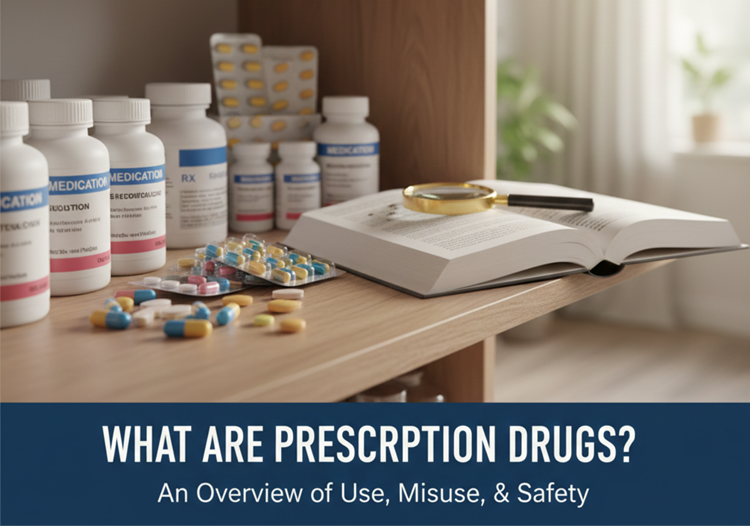The duration opioids remain in your system can differ based on the specific medication used. Generally, they can be detectable for several hours to a few days after their effects fade.
Standard urine tests typically detect opioid use for about three to four days. However, some specialized tests can find opioids for up to three months. Understanding this can empower us to make informed decisions about health and wellness.
What Are Opioids?
Opioids are a category of medications that encompass substances such as oxycodone, hydrocodone, morphine, and fentanyl, as well as illicit drugs like heroin.
They function by binding to opioid receptors in the brain, which alleviates pain and frequently induces feelings of euphoria. This dual effect explains their medical use for pain relief and the potential for misuse and addiction.
Opioids can remain in your body for different amounts of time. This depends on the type of drug, the dose taken, and your health. Typically, these substances can be identified in the system for hours to several days following the final dose.
Some common opioids are:
- Morphine
- Hydrocodone
- Oxycodone
- Codeine
- Tramadol
- Fentanyl
- Methadone
- Heroin
How Long Do Opioids Stay in Your System?
- Saliva: Saliva tests can identify opioids shortly after use, typically within minutes, and can usually detect them for up to 48 hours following the last dose. While less common, they are effective for quick detection.
- Blood: Opioids can enter the bloodstream just minutes after use. They usually remain detectable for up to 24 hours. This time can vary based on the type and amount taken.
- Urine: You can find opioids in urine for extended durations. Generally, opioids can be detected in urine for as long as three days. Some opioids, like methadone, can be detected for a week or more because they stay in the body longer.
- Hair: Hair tests offer the most extended detection period, capable of identifying opioid use for as long as 90 days following the last dose. These tests are generally employed in situations that necessitate a comprehensive history of drug use.
100% Confidential Support is Available 24/7
No matter what you’re going through, you’re not alone. Our dedicated team is here to provide a safe, judgment-free space where you can talk openly and honestly. Whether you need emotional support, resources, or just someone to listen.
We’re here for you—completely confidential and always respectful of your privacy. Call us today!
How Are Opioids Metabolized?
The body metabolizes opioids in a comparable manner. Initially, many opioids convert into different compounds before they can provide their pain-relieving benefits.
For instance, codeine is converted into morphine, which is the active ingredient in the body. Likewise, heroin breaks down into active metabolites such as 6-acetylmorphine, morphine, morphine-3-glucuronide, and morphine-6-glucuronide.
The liver and kidneys metabolize most opioids, which are then excreted in urine. If you have kidney problems, your doctor may choose an opioid that is safe for you. This will help prevent it from building up in your body because of your kidney condition.
Examples of opioids that are generally considered safe for individuals with kidney problems include methadone, fentanyl, and buprenorphine.
Contact Solutions Healthcare
Battling with Drug and Alcohol Addition? Remember, you are not alone and we are here to help you!
Factors That Affect How Long Opioids Stay in Your System
- Age: Older individuals usually metabolize medications more slowly than younger people. This can cause opioids to stay in their system longer.
- Body Composition: Opioids are soluble in fat, which means they can build up in body fat. Individuals with greater body fat may hold onto opioids for a longer time.
- Metabolism: An individual’s metabolism is essential. Those with quicker metabolisms usually break down drugs faster, leading to shorter detection periods.
- Liver and Kidney Function: The liver and kidneys play a key role in breaking down and removing drugs from the body. If these organs are not functioning well, it can delay the removal of opioids, prolonging their presence.
- Opioid Dosage and Frequency: Taking larger doses of opioids means you are using more of the drug. Using them more often keeps the drugs in your body for a longer time. For example, a person who drinks alcohol every day or in large amounts may be found in tests for a longer time. This is different from someone who drinks occasionally.
- Other Medications: If you are taking other medications, they can affect how opioids work in your body. Some drugs may cause opioids to leave your system faster. Others may slow down this process. Talking to your doctor about all the medications you are using is important. This will help ensure safe and effective treatment.
Opioid Safety
Using opioids, even when prescribed by a doctor, carries certain risks. Using these medications regularly can lead to increased tolerance and dependence. This means that larger and more frequent doses may be needed over time.
Opioids can make it hard to breathe when taken in large amounts. Misusing them can lead to a deadly overdose.
The likelihood of respiratory depression (slowed breathing) or respiratory arrest (complete cessation of breathing) is increased in individuals who:
- Are taking opioid medication for the first time
- Are on other medications that may react to opioids
- Have a condition or disease that makes breathing difficult
Opioids and Driving
All prescribed opioids include a standard warning advising against driving or using heavy machinery while on these medications. This caution is well-founded.
The side effects of opioids can vary significantly from person to person. Some individuals may feel sleepy and fall asleep, while others might experience increased energy and difficulty sleeping.
Some people may feel very sleepy, while others might feel almost normal even when taking opioids for pain relief. The warning about driving while using opioids is a safety measure. Healthcare providers and drug manufacturers cannot predict how opioids will affect each person until they are taken. As a result, it is essential to prioritize safety and avoid driving while using opioids. However, the final decision is up to the patient. They must assess their abilities and ensure they can drive safely before getting behind the wheel.
Keep in mind that you might be impaired without realizing it. If you have doubts about your ability to drive safely, consult a trusted individual. Always have a designated driver if you are using drugs or alcohol. This helps keep you and others safe on the road.
Opioid Addiction Awareness
Opioids can effectively relieve pain, but they also can trap individuals in the cycle of addiction.
Opioid use disorder is a serious and long-term condition that can lead to disability and death. It affects many people. This issue is part of a more significant problem called substance use disorder, which includes many types of addiction.
The journey from a valid prescription to drug addiction can happen fast. It often starts with a growing tolerance, meaning a person needs more of the drug to feel the same relief.
As resistance grows, addiction becomes stronger. The body produces fewer natural endorphins. This change leads people to seek dangerous highs.
Often, the move to illegal drugs like heroin starts with the misuse of prescribed opioids. This shift is a key part of the serious opioid epidemic.
Understanding how quickly addiction can develop is essential. This awareness can help prevent opioid misuse and stop addiction before it begins.
100% Confidential Support is Available 24/7
No matter what you’re going through, you’re not alone. Our dedicated team is here to provide a safe, judgment-free space where you can talk openly and honestly. Whether you need emotional support, resources, or just someone to listen.
We’re here for you—completely confidential and always respectful of your privacy. Call us today!
Find Help for Opioid Addiction Today
Treatment for opioid addiction typically starts with medical detox. Solutions Healthcare provides medical detox services, expert rehab programs, and resources for individuals struggling with opioid dependency.
If you or someone you care about is misusing opioids, we are here to help. We can provide the support needed for a healthier and sober life. Reach out to us to start your journey toward recovery.
References
- National Library of Medicine: Population pharmacokinetics of heroin and its major metabolites
- National Institute of Health (NIH): Laboratory Testing for Prescription Opioids
- Oxford Academic: Interpretation of Urine Drug Testing in Pain Patients








